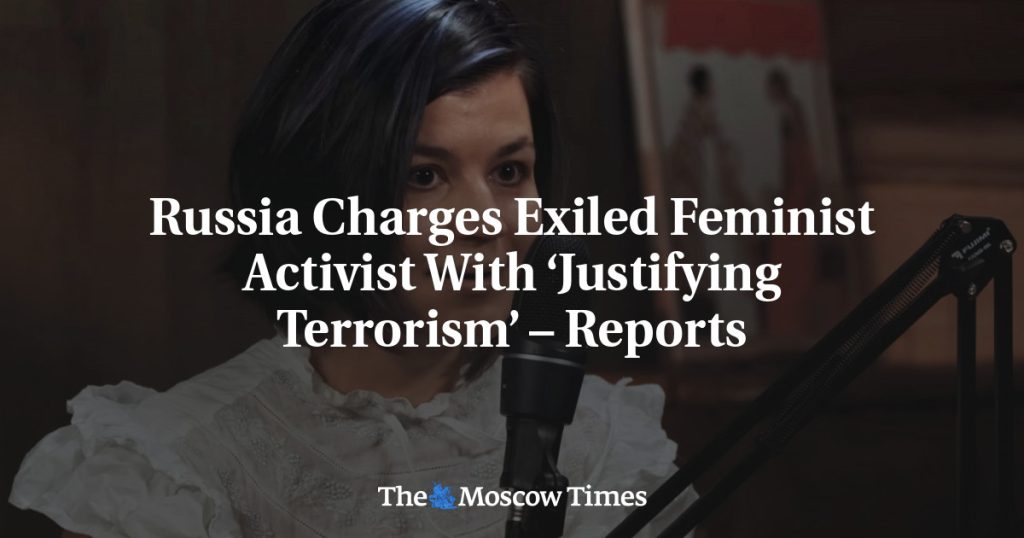Russian authorities have charged exiled feminist activist Zalina Marshenkulova with “justifying terrorism,” after she made a post on her Telegram channel regarding the killing of pro-war blogger Vladlen Tatarsky. In the post, Marshenkulova criticized those expressing condolences over Tatarsky’s death, stating that he got what he deserved for advocating violence. The Russian Investigative Committee has opened a criminal case against Marshenkulova, who is believed to be currently residing in Germany. If found guilty, she could face up to seven years in prison.
Marshenkulova has denounced the criminal case against her as “absolutely surreal and outrageous,” accusing the authorities of targeting those who disagree with the war in Ukraine. She expressed concern that individuals who speak out against violence are being labeled as terrorism supporters, and stated that her lawyers have not been officially informed about the case against her. The charges against Marshenkulova highlight the crackdown on dissenting voices in Russia and the consequences of expressing views contrary to the government’s narrative.
The case against Marshenkulova comes as part of a broader trend of silencing opposition figures and activists in Russia. The Russian government has been accused of using anti-terrorism laws to target critics and suppress dissent, leading to concerns over freedom of speech and human rights violations. The charges against Marshenkulova illustrate the risks faced by individuals who speak out against the government and the consequences of challenging official narratives.
The authorities’ accusations against Marshenkulova have sparked widespread condemnation and calls for her release. International human rights organizations have raised concerns about the use of anti-terrorism legislation to silence dissent and restrict freedom of expression in Russia. The case has gained attention both domestically and internationally, highlighting the challenges faced by activists and opposition figures in the country.
Despite the pressure from domestic and international entities, the Russian government has shown no signs of backing down on its crackdown on dissent. The case against Marshenkulova reflects the broader challenges faced by activists and opposition figures in Russia, who risk prosecution and imprisonment for expressing views that do not align with the government’s agenda. The situation underscores the importance of protecting freedom of speech and human rights in the face of increasing authoritarianism.
As the case against Zalina Marshenkulova continues to unfold, it serves as a reminder of the dangers faced by individuals who speak out against government policies and advocate for human rights. The charges against Marshenkulova highlight the risks associated with standing up for one’s beliefs in a repressive political environment, and the importance of defending freedom of speech and protecting dissenting voices. The case has sparked renewed calls for international support for activists and opposition figures in Russia, as they continue to face mounting pressure and persecution from the authorities.


